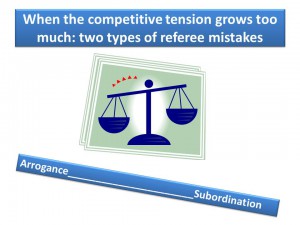Serie A teams have been active in the winter market, buying a total of 87 players, about 30 are destined to play leading roles. Salernitana and Genoa have changed at least six elevenths of the basic line-up: in Salerno, the new sporting director Sabatini has bought 11 players in 17 days, a whole team. In Samp, at least 4 new players have been brought in, Cagliari has renewed the entire defense. Juventus has revolutionized midfield and attack.
How can this approach of the clubs be combined with the knowledge we have about the role of team cohesion, a phenomenon that takes time to establish and consolidate. Let’s try to understand it starting from the fact that:
“In order to integrate competencies, it is necessary to distinguish between competency acquired through the experience of playing a particular sport and the experience of playing on a particular team. The importance of this distinction was highlighted by a study conducted in the tennis doubles … This research provided evidence that shared knowledge is important for team coordination and that one comes to share knowledge with other team members by playing that sport but also by playing on that particular team. Shared knowledge is also gained prior to a given game through explicit planning. Coaches routinely provide players with information about the team’s planned actions by communicating to them action plans for dealing with opponents. Planning can occur at different levels of team functioning … At the most general level, the desired outcomes are established, e.g., “win 2-0.” Planning at this level involves a decision about what outcome to pursue. At the next lower level, design refers to the general behavioral approach taken to manifest a particular attitude, such as “aggressive play,” and the decision about which design to employ is referred to as schema. Next, procedures constitute specific sequences of overall actions such as “attacking from the center.” Planning at this level involves a decision, called strategy, about which procedure(s) to employ. At the lowest level, operations constitute micro-level actions such as “player X should attempt, when possible, to pass to player Y”. A decision at this level about which operation to employ is called a tactic. While planning can occur at any level of abstraction, the design and that is the game plan involving only the higher levels places few constraints on how that plan of action might be implemented at the lower levels. For example, in soccer the design of “playing offense with high intensity” provides few specific constraints on moment-to-moment selections of players at the operational level during the game, allowing flexibility in the use of tactics to attack with high intensity” (From Alberto Cei, Fundamentals of Sport Psychology, 2021).







